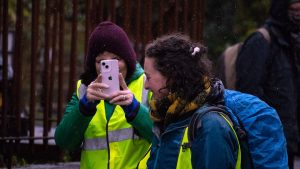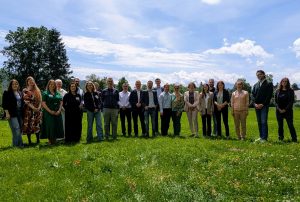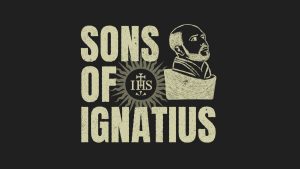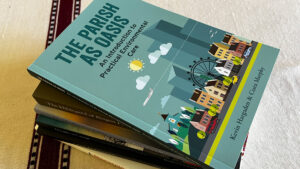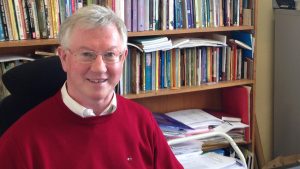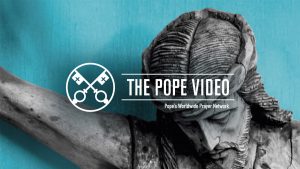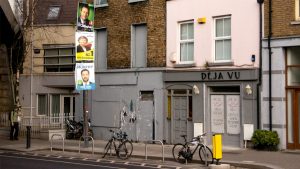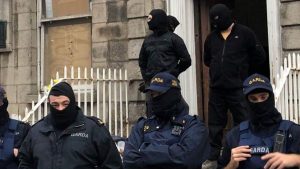‘God is not white’
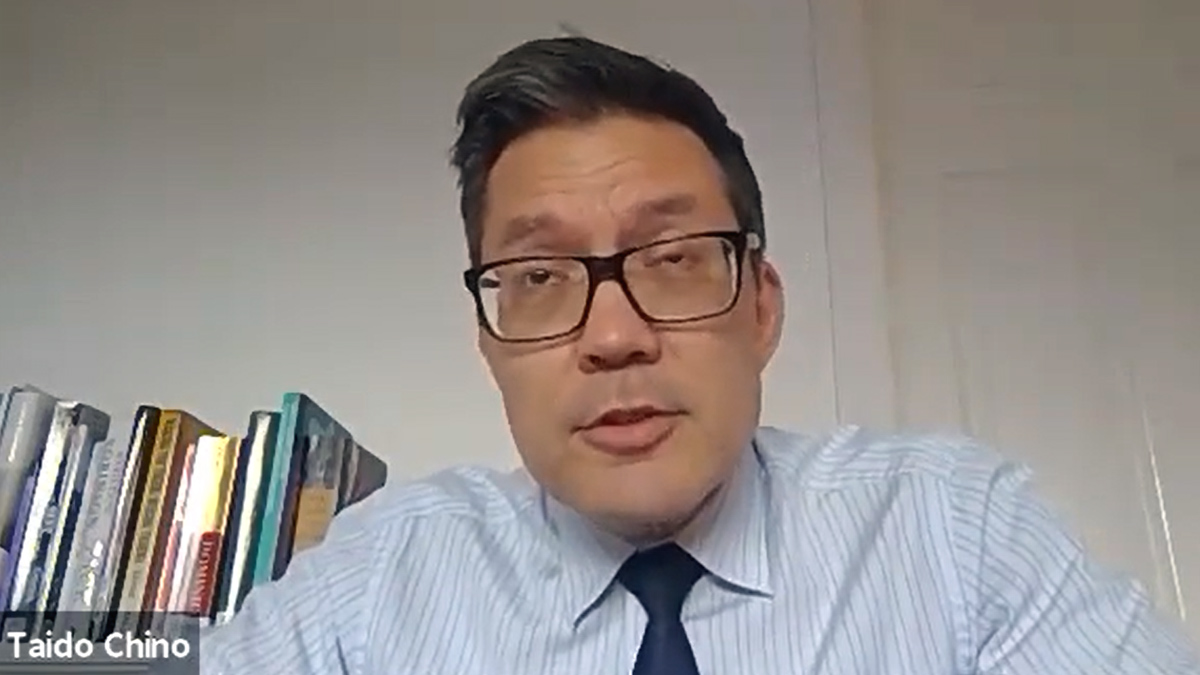
The Jesuit Centre for Faith and Justice hosted an online conversation on racism and Christianity with the theme ‘God is not white’, on Thursday 25 November 2021.
The speaker was American theologian Dr Taido Chino, who teaches at Augustana College in Illinois. He explored not just the problem of racism, but the ways in which people’s spiritual convictions can help them make a meaningful contribution on this critical cultural issue.
The conversation was moderated by JCFJ Director, Dr Kevin Hargaden – the two have known each other since meeting while studying for their doctorates at the University of Aberdeen.
Dr Chino has lived in a number of places in (and out of) the United States, but most of his life has been spent in central Arkansas, where he was a pastor at a non-denominational church for a number of years.
The legacy of racial strife in the Deep South is well-known, he says, adding, “I was regularly confronted with the unique challenges of engaging in ministry with a community marked by generations of racial animosity and segregation. Nevertheless, we had a fruitful season of ministry there, and the church was slowly able to overcome the divisions which tend to characterize the American church.”
About a decade ago, Dr Chino says he discerned that his vocation was increasingly shifting towards theological education with students of various kinds. In preparation for that work, he undertook doctoral studies at the University of Aberdeen to reflect on the nature of scripture and its role in the church. “My time there was immensely rewarding,” he says, “and it led to post-doctoral work in Tübingen, Germany, and then to my current teaching position here.”
Dr Chino adds, “I am married to Alison, my better in every respect, and we have four children.”
Read below Martina Madden’s (JCFJ) account of the webinar, including a link to the event on YouTube and a transcript of the conversation.
‘God is not white’ – The Church’s problem with race
Kevin opened the conversation by asking Taido when he first became aware that the church had a problem with race, to which Taido responded with a personal anecdote about his experiences as a man of Japanese heritage living in the US.
When he was just 18, growing up in Arkansas, he began to date a girl who was the granddaughter of a woman who led bible study groups, and as such was a ‘pillar of the community’. This woman was “in many ways just a delightful person to be around” he recalled, but when he became involved with her [White] granddaughter he saw a different side to her.
She offered biblical justifications by quoting a verse that mentioned not breeding different types of cattle together, or mixing different materials to make fabric. From this, he inferred that God did not approve of people of different races being romantically involved but recognised even though he was ‘young in the faith’ that ‘something seemed a little bit off there, and I couldn’t put my finger on it at the time’.
Although he later went on to marry the girl he was dating, and her grandmother progressed to being in favour of their union, Taido realised that this was not an anomaly, “but that she actually stands at the culmination of a long line of approaching the scriptures to justify various kinds of racist ideologies”. He then began his journey of discovery about the history of Christians using the Bible to support their racist endeavours.
Awareness of history and embeddedness of racism
To the question “Do you think that the church is alert to its own history of racism?” Taido responded that it is not alert to its own historical complicity in racism, and provided an example of the ignorance of his own students in Augustana College, saying “It’s striking that I’ll be teaching undergraduates, relatively serious-minded students, and yet they’re just completely ignorant of this history”.
He linked its evolution to the 16th century, the beginning of the United States and the European colonial project, saying “I think that it’s telling that it’s during this period of time, when not only are empires expanding, but along with it, there’s a religious backing that is needing to reframe the story in such a way that one can show up in a new place, in a new land, and have to imagine how it is that Christianity is meant to be a propelling force in this new place”.
In the present day, US Evangelical Christians see racism as a personal sin rather than a systemic problem, said Taido. “All they’re ever really doing is looking at themselves, or their neighbours, and saying, I’m not a racist, and I’ve never owned slaves, and neither have the people who are sitting next to me.” He extolled the need for Christians to look past this as an individual issue and address the problems with the framework which result in African-Americans being incarcerated at a higher rate than any other race, being more likely to live in poverty and in sub-standard housing.
Racism in the Irish context
Kevin offered a contextual comparison for Ireland, saying ‘And we have an ethnic class of people in Ireland who are disproportionately impoverished, who are disproportionately imprisoned, and who live in temporary halting sites on the edges of towns, absolutely kept out of stable housing by good Christian upstanding moral people, and that class of people is called Travellers’. He elaborated on how Irish Travellers are discriminated against and the tendency in Ireland to attribute racism as a problem that other people have, which doesn’t apply in Ireland.
Responses to racism by Churches
In response to Kevin’s question about how the church in Ireland and in the US could offer an alternative, Taido said that there is no one answer, that churches are already responding but the responses are not yet adequate to solve this wide-ranging and deeply embedded issue. He spoke of the need to react in a deeper and way which recognises racism as sin and acknowledges the need for reconciliation.
Georgetown, the Jesuit University in Washington DC, was discussed as an example of reparations because “they were involved in the practice of slavery. They profited at a time when they needed to in the 19th century, they sold 272 slaves for a sum of money”, but Taido felt that churches should focus more on the theological concept of reconciliation and on how racism had damages their community and leave space to make amends. He also highlighted the role of organisations like the JCFJ in providing the social analysis to enable church leaders and churchgoers to think about topics like which groups climate change will affect most.
Q & A and Further Reading
Questions from webinar attendees were concerned with how best church and political leaders could respond to issues of structural racism and what this meant in Ireland, and also with how Pope Francis was changing the approach of the Catholic Church in this regard.
Prompted by a comment from an audience member with a book recommendation, My Grandmother’s Hands by Resmaa Menakem, Taido made some book recommendations at the end of the webinar for anyone interested in reading more about race and Christianity.
The Christian Imagination by Willie James Jennings is the cornerstone for the contemporary conversation, whilst A Black Theology of Liberation by James H Cone is the text that perhaps most definitively started the conversation. Finally Exclusion and Embrace by Miroslav Volf while not directly addressing race, offers an accessible yet profound account of why Christians particularly must reach out to ‘the other’.
You can watch the webinar on the JCFJ YouTube channel » or read the transcript of the webinar ».






